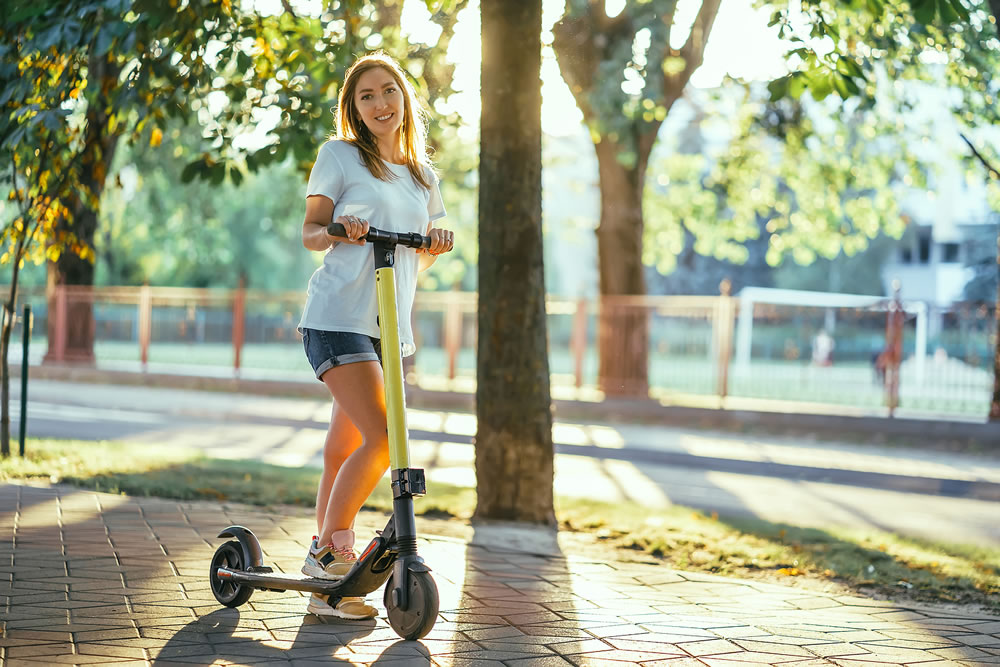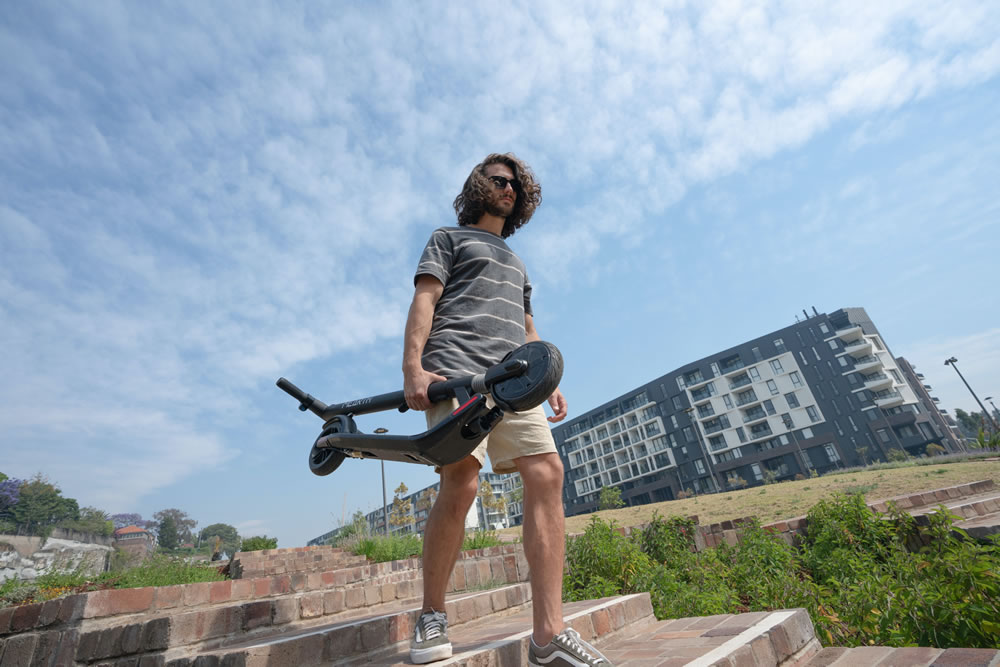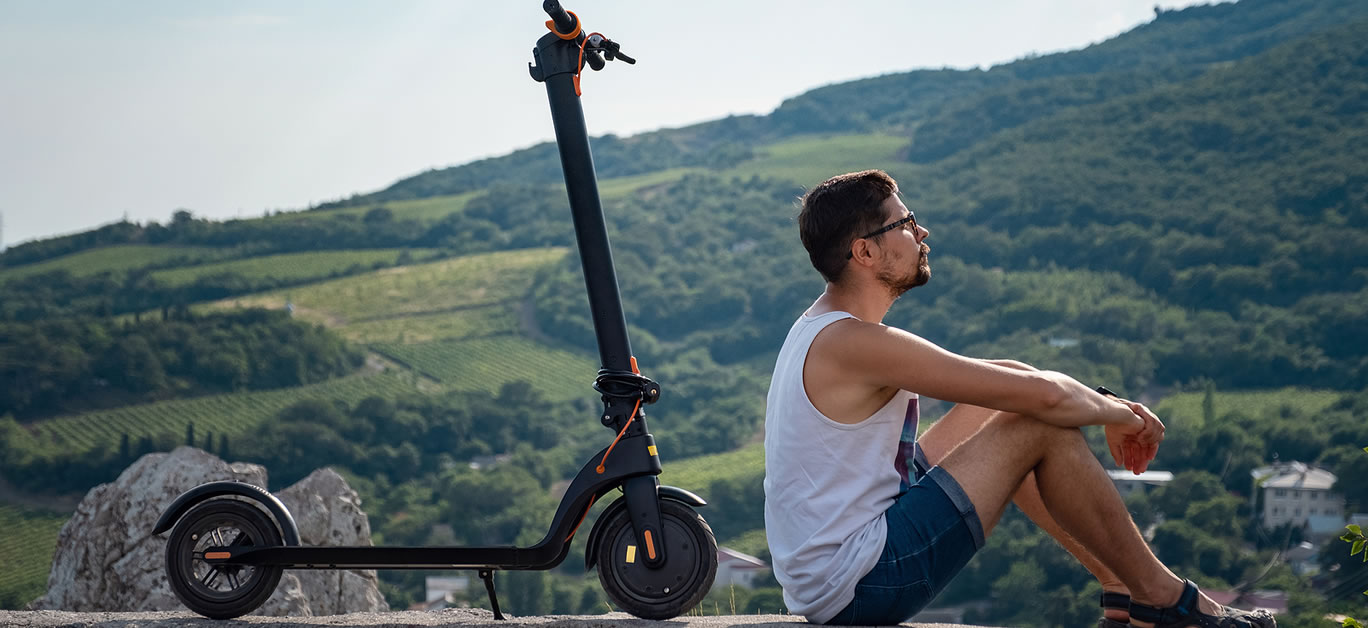Electric scooters and e-bikes have been popular among environmentally conscious commuters for some time now, but in a world where most markets have struggled in 2020 due to the ongoing Covid-19 pandemic, as more people avoid public transport than ever, sales globally – from the US to Japan – are booming.
Even high-flying city slickers and business professionals have begun to embrace the trend, and with the arrival of a range of new high-end brands on the market, the trend is continuing to grow.
Here in the UK, cities are running their first trials of e-scooters, presented as a socially distanced alternative to tubes, trains and buses – and hire firms and retailers are eyeing up a potentially huge new market. Since July, cities including London and Manchester have been rolling out trials of electric scooter hire services such as Bird – but private use remains illegal on roads and pavements.
Even so, that hasn’t stopped buyers from investing in their own electric scooters – for off-road use – it’s not just a means of transport, but a popular hobby, too, and one that many seem to be enjoying come the weekend.

Eridehero’s selections shine a spotlight on some of the leading luxury brands globally, and is testament to the fact that the increase in demand continues to grow. Comparing the best products and providing detailed reviews, it’s a one-stop shop for anyone considering investing in their own premium electric scooter.
Currently, privately-owned electric scooters can only be used on private land and with permission from the land owner – but could all that be set to change?
Changing times
In light of the current ongoing rental trials, it is hoped that, at some point in the future, private use will be made legal on the UK’s roads. As a viable socially distanced way to get to the office and a greener and more environmentally friendly one too, it seems unlikely that the current levels of prohibition will last. But when this might eventually change remains to be seen.
There are strong advocates for the legalisation of the use of privately owned electric scooters in the UK. The London Cycle Campaign has long been behind permitting them to be used on roads, and supports the cleaner, lower carbon alternative.
Many believe that they can only be a positive thing, reducing car use and making for quieter, cleaner cities and safer streets, but not everyone is in support of them. Some argue that they offer limited health benefits and pose a potential safety hazard due to their lack of headlights, break lights and number plates – as well as the fact that they are largely silent.

A growing market
Regardless of your stance, there’s no denying that this is a growing market, which is expected to peak globally in 2025 with a value of around £20 billion. So, while the UK might not currently account for a huge amount of this, there is no denying their popularity elsewhere – in countries where on-road use is entirely legal, and use is promoted widely.
From Lima to Paris, Tokyo to Bangkok, e-scooters have fast become a common site on the streets worldwide, and with an increased demand for luxurious, high-end models, the market is shifting to accommodate them.
In all of these countries, and many more, scooter manufacturers and hire firms alike – the latter armed with venture capital – are competing hard for market share, and investors in Europe are keeping an eye on the likes of Voi, Circ and Flash to see whether an e-scooter Uber service could be just around the corner.

In spite of the current UK regulations around electric scooters, even the market here remains buoyant. Since April private sales have increased by a whopping 134 per cent – and we can expect to see the numbers continue to rise as we head into 2021.
Looking ahead
Whatever the future holds for e-scooters in the UK, it’s already clear that public support for them is strong – and as we move towards eliminating petrol and diesel cars and minimising our carbon emissions as a nation, it seems likely they will have a part to play. With current rental trials yielding positive results, private owners could eventually be afforded the same privileges – but when, where and how, at the present time, remain to be seen.






















